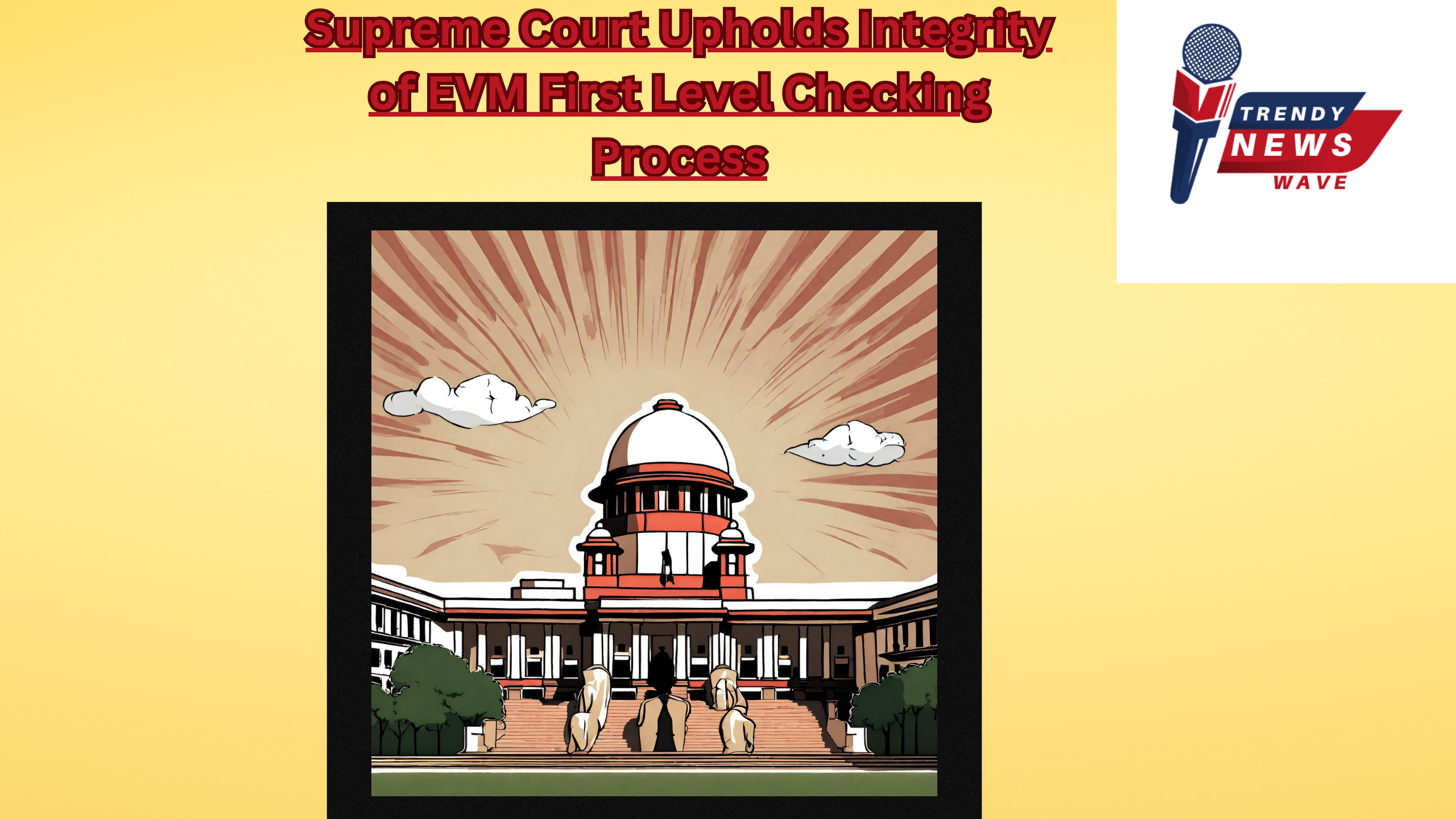The Supreme Court of India, in a recent ruling, dismissed a plea seeking the disclosure of Unique Identity Numbers (UINs) of Electronic Voting Machines (EVMs) designated for First Level Checking (FLC) for the upcoming Lok Sabha elections. The plea was filed by Anil Choudhary, the Delhi Pradesh Congress Committee chief, challenging the Delhi High Court’s decision to reject the request.
Understanding the Plea and Supreme Court’s Response
Anil Choudhary’s petition urged for the revelation of the UINs of EVMs intended for the First Level Checking, a crucial step in ensuring the integrity and functionality of the voting machines. However, the Supreme Court emphasized the thoroughness of the FLC process, stating that it has been widely replicated and trusted by political parties across India.
Table of Contents
The three-judge bench, headed by Chief Justice of India D Y Chandrachud and comprising Justices J B Pardiwala and Manoj Misra, highlighted that the appellant had not actively participated in the FLC process despite being invited. Chief Justice Chandrachud expressed the Court’s reluctance to interfere in this matter, as it could significantly delay the election schedule.
Appellant’s Argument and Election Commission’s Stand
Anil Choudhary’s counsel argued that the FLC process should be completed at least 90 days before the elections as per the rule. He contended that the Election Commission of India (ECI) had informed Choudhary in July about commencing the FLC and invited his participation. However, Choudhary requested the UINs of the EVMs before the FLC, a request that was granted only after the FLC was conducted.
Choudhary’s counsel shed light on the EVM distribution process, stating that the UINs are prepared for each machine by the Electronics Corporation of India or Bharat Electronics when the machines are dispatched. However, there is a lack of clarity regarding what transpires during the transit of these machines from dispatch to receipt at godowns.
Supreme Court’s Rationale
The Supreme Court bench underscored the Delhi High Court’s exhaustive examination of the matter, emphasizing the detailed procedure prescribed for FLC. The involvement of political parties in the FLC is an essential step in the process, and the absence of one party’s participation does not cast doubt on the entire process.
The Court noted that there is faith in the outcome of the FLC process, as evidenced by the participation of some parties, including the Congress. The Delhi High Court’s comprehensive assessment supported the contention that the FLC process is structured and designed to ensure the credibility of EVMs.
In conclusion, the Supreme Court’s decision to uphold the integrity and credibility of the FLC process in EVM handling reiterates the importance of the established electoral procedures. The Court’s ruling signifies confidence in the existing mechanisms and processes that are vital for a free, fair, and transparent electoral system in the world’s largest democracy. As the nation looks ahead to the upcoming Lok Sabha elections, trust in the electoral process remains paramount, ensuring the voice of the people is accurately and fairly represented.
Fans React to Subhasree’s Unexpected Elimination from Bigg Boss Telugu Season 7
Hilarious Moments Unfold in Bigg Boss 7 Telugu: A Lesson in Language and Laughter

Neeraj Chopra’s Javelin Throw Triumph: A Glimpse into Asian Games 2023
Aamir Khan’s Next Move: know whose bio pic he is gonna do

Nee Chuttu Chuttu song lyrics-skanda
Bigg Boss 7 2.0 Promo: Nominations Heat Up in the BB House know more

